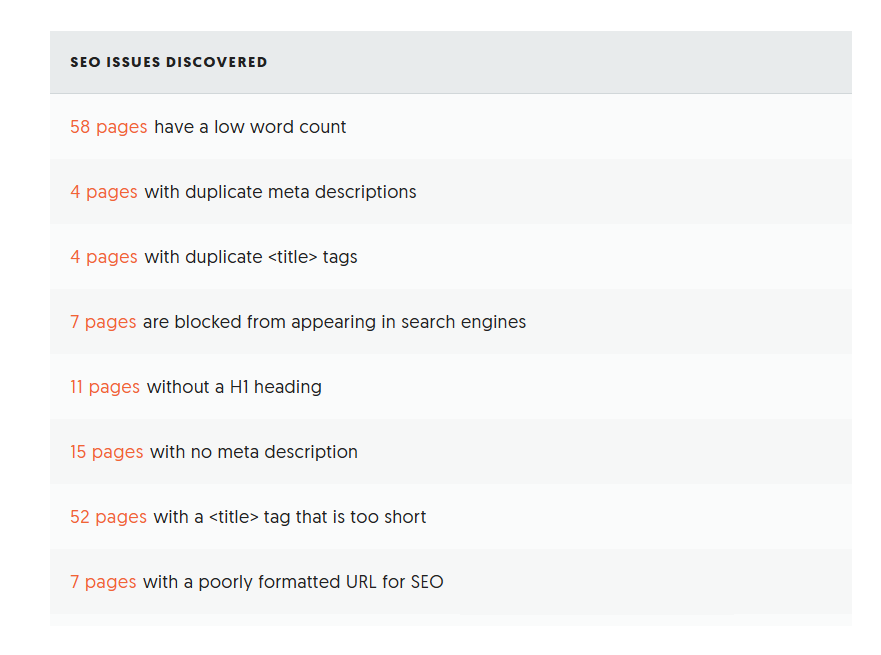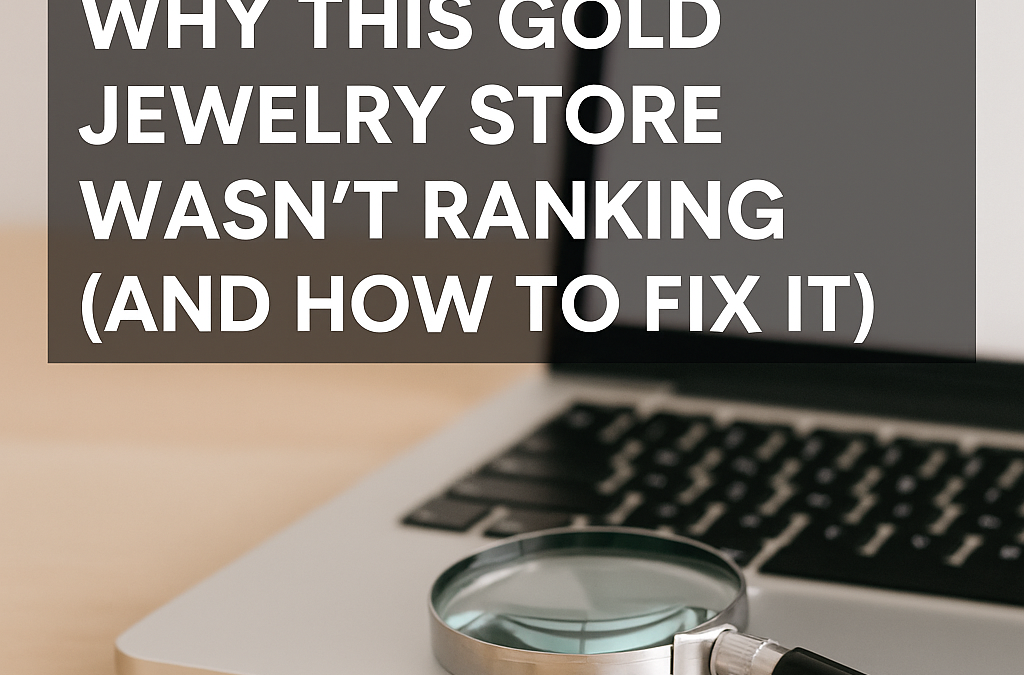Introduction
I recently conducted an SEO audit for a Shopify-based gold jewelry store that looked beautiful and professional — yet barely appeared on Google.
Despite having elegant visuals, smooth navigation, and premium products, the website was invisible to search engines.
This audit breaks down why it wasn’t ranking and what fixes can dramatically improve visibility, traffic, and sales.
1. Current SEO Status of Shopify Store
The store had all the ingredients for success — except SEO. Here’s what I discovered during the audit:
- Organic Traffic: Almost zero visitors from Google.
- Keywords Ranked: Only one keyword indexed.
- Backlinks: Around 15 referring domains (weak authority).
- Overall SEO Health: ~64/100 score.
The core issue wasn’t design or speed — it was missing content depth, keyword optimization, and authority signals that Google uses to rank eCommerce sites.

2. Key SEO Issues Found
a) Thin Product Content
Most product descriptions were just 3–4 lines long. For jewelry, where buyers look for trust, craftsmanship, and value, short content hurts both SEO and conversions.
Google struggles to understand what each product is about — and potential buyers don’t find enough details to make a confident purchase.
b) Missing Blog Section
The site had no blog, which means it missed out on ranking for informational and long-tail keywords, such as:
- How to identify real gold vs gold plated jewelry
- Latest gold jewelry trends 2025
- Wedding jewelry ideas for brides
A blog builds topical authority — it helps a brand rank not only for products but also for the questions potential buyers are asking.
c) On-Page SEO Gaps
- 58 pages have a very low word count (thin content).
- 4 pages have duplicate meta descriptions, and 4 pages have identical title tags — both can confuse search engines.
- 11 pages are missing H1 headings.
- 15 pages don’t have any meta description at all.
- 52 pages have title tags that are too short (below 30 characters).
- 7 pages use poorly formatted URLs that lack relevant keywords
These issues prevent Google from understanding page relevance and reduce overall keyword performance.

d) Weak Backlink Profile
The store had very few backlinks, which limited domain authority. Competing jewelry stores with stronger backlink profiles were easily outranking it.
3. Why These SEO Issues Matter
Search engines rely on content quality, structure, and authority to decide which pages to rank.
A beautiful Shopify site alone can’t perform unless it’s technically optimized and rich with context.
Thin descriptions and no blog leave Google with little to index, while poor linking and low backlinks reduce visibility.
The result? The brand remains hidden — forcing reliance on paid ads instead of organic discovery.
4. Recommended SEO Fixes
One-Time SEO Setup
- Expand all product descriptions (200–400 words) with storytelling, keywords, and specifications.
- Optimise meta titles, descriptions, and H1 tags across all pages.
- Enable indexing for key trust pages (About, Refund Policy, Shipping Policy).
- Submit sitemap to Google Search Console and verify indexing.
- Add descriptive alt tags for all product images.
- Launch a blog section with at least 3–5 keyword-rich posts.
Ongoing SEO Strategy
- Publish 2–4 blog posts monthly around jewelry trends, buying guides, and care tips.
- Build backlinks through fashion/lifestyle blogs, jewelry directories, and influencer collaborations.
- Optimize collection pages for buyer-intent keywords (e.g., gold bangles online, 18k bridal necklace).
- Track rankings and performance monthly through GSC and analytics.
- Run seasonal SEO campaigns (Diwali, Eid, Weddings, Valentine’s Day).
5. The Expected Outcome
After implementing these changes, similar Shopify stores have seen:
- 3–5× growth in organic traffic within a few months.
- Improved keyword visibility for both products and blogs.
- Stronger engagement and conversions from better-optimized pages.
- Sustainable growth through organic traffic — not just paid ads.
Conclusion
Even the most elegant jewelry website can fail to reach customers if it’s not optimized for search.
Shopify SEO isn’t about complex code — it’s about clarity, consistency, and content that builds trust with both Google and buyers.
If you’d like to see how your Shopify or eCommerce store can perform better, I offer a free mini SEO audit to show you exactly where your opportunities lie.
The store had all the ingredients for success — except SEO. Here’s what I discovered during the audit:
- Organic Traffic: Almost zero visitors from Google.
- Keywords Ranked: Only one keyword indexed.
- Backlinks: Around 18 referring domains (weak authority).
- Overall SEO Health: ~65/100 score.
The core issue wasn’t design or speed — it was missing content depth, keyword optimization, and authority signals that Google uses to rank eCommerce sites.
Even the most elegant jewelry website can fail to reach customers if it’s not optimized for search.
Shopify SEO isn’t about complex code — it’s about clarity, consistency, and content that builds trust with both Google and buyers.
If you’d like to see how your Shopify or eCommerce store can perform better, I offer a free mini SEO audit to show you exactly where your opportunities lie.

